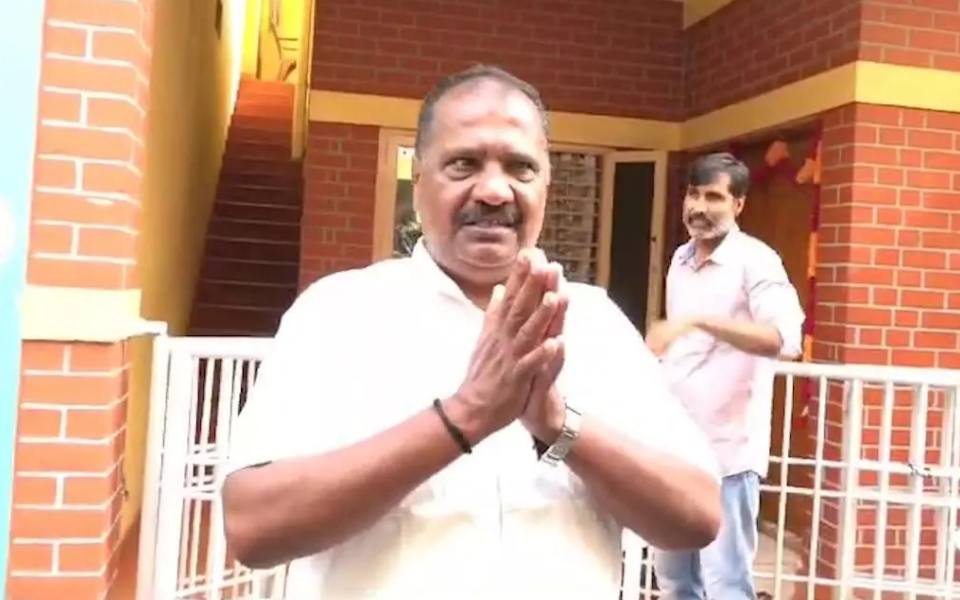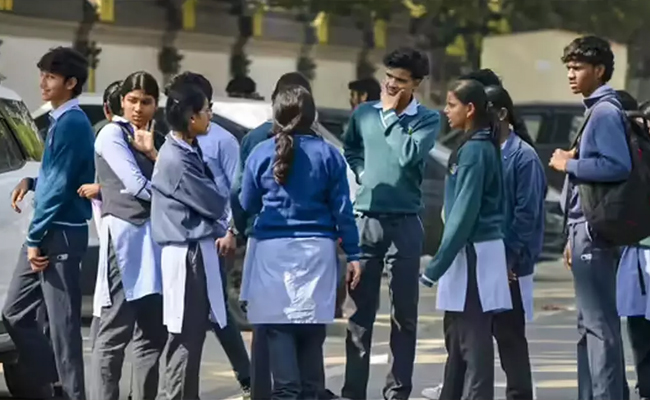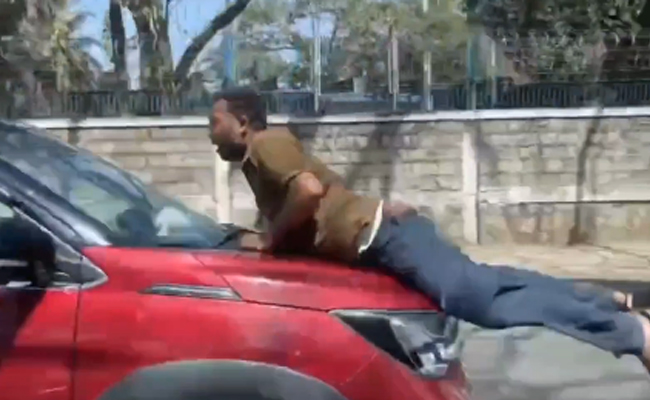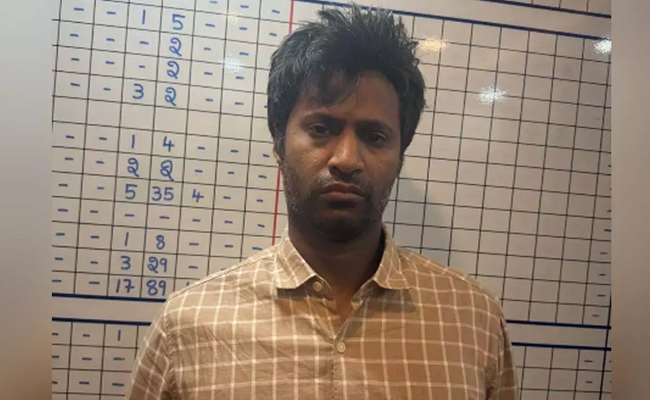Mysuru, Dec 13: "Hang my son if he has done wrong", said the father of one of the two men who jumped into the Lok Sabha chamber in a major security breach on Wednesday.
Manoranjan D's father Devaraje Gowda, however, claimed that his son is honest and truthful and always desired to do good for the society.
"It is okay if my son does good but if he has done something wrong then hang him. He is not my son (if he has done wrong). That Parliament is ours. People like you all have built it. Leaders like Mahatma Gandhi, Nehru had toiled to build it. Whoever does it (attack) is condemnable. We will not accept it," Gowda told reporters.
"My son is a good boy. He is honest and truthful. His only desire is to do good for the society and sacrifice for the society. He used to read Swami Vivekananda's books. I think he developed such thoughts after reading these books," he said.
ALSO READ: Bhasker, who made hoax bomb threat call to Karnataka Raj Bhavan arrested
"It is difficult to understand what was running in his mind. My son completed his BE (Bachelor in Engineering) in 2016 and was looking after the farm. He also worked in some firms in Delhi and Bengaluru," he added.
Manoranjan, who hailed from Mysuru, and another person, Sagar Sharma jumped into the Lok Sabha chamber from the pubic gallery and released yellow-coloured smoke from canisters, triggering panic among the Members of Parliament.
They also shouted slogans before being overpowered by MPs.
Let the Truth be known. If you read VB and like VB, please be a VB Supporter and Help us deliver the Truth to one and all.
Chandigarh (PTI): Sixteen private schools in Punjab's Mohali received bomb threat emails on Wednesday, triggering evacuation and prompting detailed anti-sabotage checks by police, an officer said.
No suspicious or explosive material was discovered at any of the locations after thorough inspections, the officer said.
School authorities sent messages to parents, declaring a holiday. Students on their way to school were sent back home, they said.
Manav Mangal School, Shivalik Public School, and Learning Paths School were among the schools which received the bomb threat emails.
The police said they swung into action after school authorities reported receiving the emails between 7.30 am and 8 am.
Security was mounted at the targeted schools, and intensive searches were carried out, they said.
"The police teams led by superintendents of police, deputy superintendents of police and other officials were rushed to the schools along with anti-sabotage teams and bomb disposal squads," Mohali Senior Superintendent of Police (SSP) Harmandeep Singh Hans told reporters.
Around 300 policemen were involved in the search operation, and all targeted schools were evacuated, he said.
The checking of all schools was completed within about two-and-a-half hours with the support of additional force and specialised teams from neighbouring districts of Fatehgarh Sahib, Rupnagar, and Chandigarh headquarters, Hans said.
"No explosive material was found at any of the locations," he added.
The search operations were supervised by SP City Dilpreet Singh, along with SPs Navneet Singh Mahal, Mohit Aggarwal, Sukhnaz Singh, Ramandeep Singh and Talwinder Singh Gill; DSP City-1 Prithvi Singh Chahal, DSP City-2 Harsimran Singh Bal and all station house officers.
Schools covered during the search included Amity School, Doon School, Learning Paths, Gurukul School, Vivek High School, Paragon School, YPS School, Lawrence School, and Gem Public School.
An FIR is being lodged, and the case has been referred to the Cyber Police Station, Phase-7, Mohali, to ascertain the origin of the threatening email and conduct an investigation, Hans said.
The latest scare comes close on the heels of similar threat incidents in Chandigarh, Amritsar, Jalandhar, Patiala, and schools in Haryana, all of which turned out to be hoaxes.





